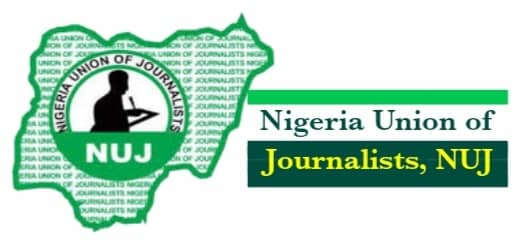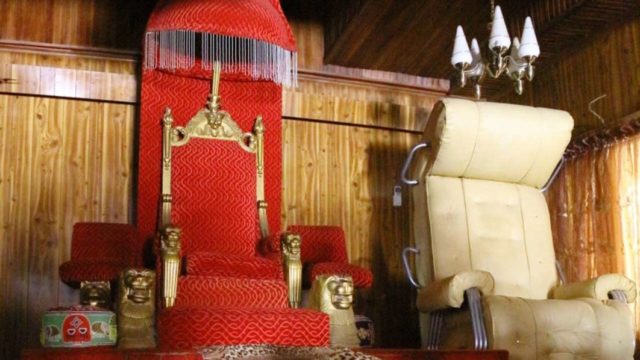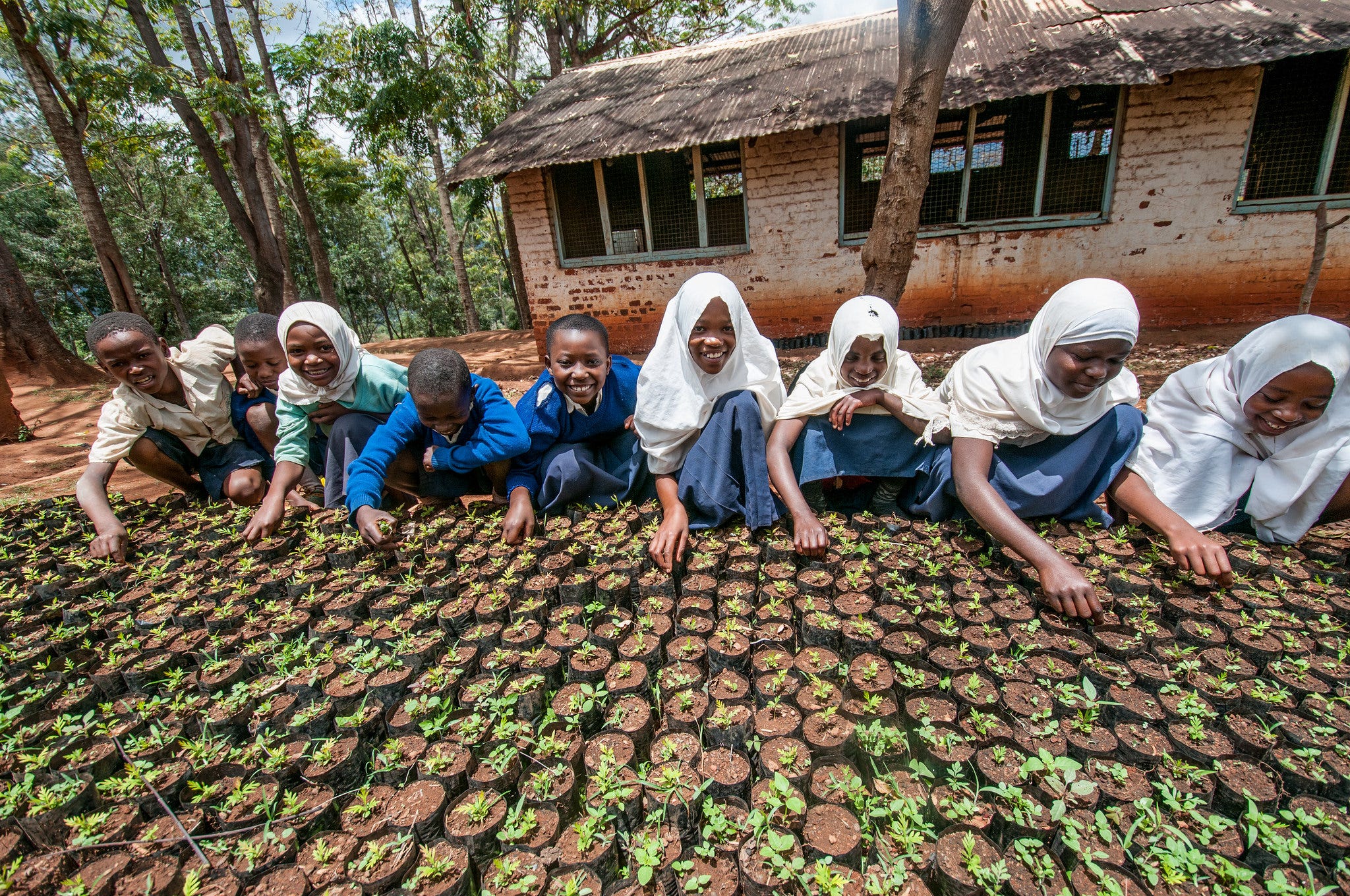By Dare Babarinsa
Chairman, Gaskia Media Ltd
I want to thank the members and leadership of the Nigerian Union of Journalists, NUJ, the Bravo Zone, organisers of this event, for the special honour and privilege of standing before this distinguished audience at this sacred spot of Nigerian journalism. As you all know, it was here in 1859, that the first newspaper in Nigeria, Iwe Iroyin, was published. Since then, from generation to generation, there is no stopping us the inheritors. We salute the courage of the Reverend Henry Townsend of the Church Missionary Society, for his pioneering effort in starting the Iwe Iroyin Fun Awon Yoruba ati Egba. By tackling the problems of contemporary journalism here, we are actually seeking inspirations from our professional ancestors to get us solutions to lingering problems. We are here to discuss journalism at this challenging times.
Coming here to Abeokuta for me is not just a visit to the sacred grove of journalism where Henry Townsend and his colleagues found inspiration to start the journey of Nigerian journalism. For me, Abeokuta represents a special terminus in my career as a journalist. After I graduated from the University of Lagos in 1981, I was posted here for my compulsory National Service. I did my national service with the Ogun State branch of the National Youth Service Corps as the NYSC Public Relations Officer. Our office was then on Nawar ur Deen Street in the heart of the old Abeokuta. As the NYSC PRO, I collaborated with the Information Officer to produce the NYSC regular newsletter. We also produced the magazine called Corps Torch. It was an exhilarating period when one of the titans of our profession, Chief Olabisi Onabanjo, was the elected governor of Ogun State.
It is also on record that the second elected Governor of Ogun State, Chief Olusegun Osoba, is also one the living legends of journalism. Chief Osoba had the distinction of serving as chief executive of three national newspapers; the Nigerian Herald in Ilorin, the Sketch in Ibadan and the monumental Daily Times in Lagos. Chief Osoba remains a great inspiration to many of us especially those who have the courage to plunge into politics. In 2006, I sought to become the Governor of Ekiti State. It was Chief Osoba who took me to the legendary Alhaji Babatunde Jose so that I can receive the right spiritual impartation from the highest ecclesiastical personage of our profession. I remain eternally grateful to both Chief Osoba and Baba Jose.
At the heart of what we are discussing today is what has happened to journalism that we now have very few of our colleagues gunning for high elective offices. During the last general elections, only few of our colleagues sought high elective offices to become President, governors, state or federal legislators. In Ogun State here, our distinguished colleague, Modele Sarafa Yusuf, made an attempt to become the governor, but her ambition was aborted. We now found that the Fourth Nigerian Republic has very few journalists in high elective political offices. You ask yourself where are the Bisi Onabanjos, Lateef Jakandes and Segun Osobas of this era? Last year, one of our distinguished colleagues and one of the best-known Nigerians all over the world, Basorun Dele Momodu, sought to secure the presidential nomination of the opposition Peoples Democratic Party, PDP. Momodu lost his nomination bid. He did not have access to enough fund which is now the main weapon of political contest in contemporary Nigeria.
Yet this is the same country in which many top journalists have played prominent roles in the past. Indeed, the founding fathers of our republic have used journalism as their staging post. Herbert Macaulay, the Father of Nigerian Nationalism, though trained as a surveyor, was also a man who used the newspaper as his weapon against the British colonial power. Dr Nnamdi Azikiwe, the founder and Editor-in-Chief of the West African Pilot, was the first President of Nigeria and first Premier of the defunct Eastern Region. The first Premier of the defunct Western Region, Chief Obafemi Awolowo, was also a former reporter for the Daily Times and the founder of the Nigerian Tribune, now the oldest surviving privately owned newspaper group. The first and only Prime Minister of Nigeria, the late Alhaji Abubakar Tafawa Balewa was a broadcaster. We also had many top journalists who served during the First and Second Republics in important positions. Chief Anthony Enahoro, former editor of the Southern Nigerian Defender, was the hero who moved the motion for Self-Government for Nigeria in 1953. Enahoro later played a prominent role during the Nigerian Civil War and was the leader of the opposition National Democratic Coalition, which led the struggle against military dictatorship culminating in victory and the birth of democratic dispensation in 1999.
The truth is that journalists have been involved in every important stage of Nigerian history. In the last struggle against military rule, many media houses were at the forefront of the struggle. Mention must be made of media houses like the TELL, The News, Punch, Guardian, African Concord, Newswatch and the National Concord.
Journalists have been involved in every important stage of Nigerian history.
Many top journalists were sent to prison and many were hounded into involuntary exile. Some of our colleagues, like Baguada Kaltho of the TheNews paid the supreme sacrifice. Many journalists including the likes of Niran Malaolu, George Mba, Ben Charles Obi, Femi Ojudu, Onome Osifo-Whiskey, Nosa Igiebor, Soji Omotunde, Osa Director, Chris Anyanwu, Kolawole Ilori, Ayo Akinkuotu, Kunle Ajibade, Bayo Onanuga, Dele Omotunde, and many others suffered imprisonment, detention without trial, exile, persecution and brutalisation. In the end, our beloved country is now free from military rule and any form of tyranny. As we celebrate the 64th year of our independence, we should not forget also those heroes who made freedom from military rule possible. Without that freedom, we will not be gathered here today. If we dare, we can sure that operatives of the State Security would be waiting in the wings to take some people into detention.
Now, our country is free from military rule; and we have elected leaders in charge of every layer of our country’s administration from the presidency to the local government councils. But our country is not free from socio-economic challenges and nowhere is more emblematic of this than the Nigerian newsrooms. In this discourse, I am going to refer to the traditional media; the newspapers, radio and television stations.
The economic and social situation has affected the Nigerian media drastically. In 1966 Chief Osoba was a young reporter with the old Daily Times. He was assigned to go and cover the burial of Prime Minister Tafawa Balewa in Bauchi. Because of the urgency of the situation, he had to hire a small aircraft from Lagos that flew him to Bauchi. I don’t know which newspaper, radio or television station can afford that now. When I joined the Concord group of newspapers in 1982, our daily print run was more than 200,000 copies. During the editorship of Mr Gbolabo Ogunsanwo, the print run of the old Sunday Times was 600,000 copies. When we printed the first edition of Tell magazine in 1991, our first print run was 25,000. In my 15 years as an Executive Director of TELL, there were weeks when our print run exceeded 150,000 copies. Now the great times are past and we are worried.
There is no need dwelling too long in the land of nostalgia. It is true that the traditional media have taken a beating from the new media during this Internet Age. This is the trend all over the world. But what has been a challenge in Europe, America and Asia is a disaster for us in Africa, particularly in Nigeria. I don’t know of any newspaper in Nigeria today that has a print run of more than 50,000 copies daily. Yet in this 2024, the print run of the Sunday Times of South Africa is now 500,000 copies. The Times of India is still circulating more than 2.8 million copies daily. The Yomiuri Shimbun in Japan have a daily circulation of more than 9.1 million copies. So, what is happening to us?
There are many reasons for the downturn in the media. We lament about the trauma of the military years which has left us with many scars: the assassination of Dele Giwa, the first Editor-in-Chief of the old Newswatch, the attempted assassination of Mr Michael Ibru, the publisher of The Guardian, the imprisonment, the frame ups, the persecutions, the involuntary exiles, the hunting, the seizure of newspaper and magazine copies, the arsons against newspaper houses, the kidnapping and the harassments. Yes, these are serious things. But Israel and the Palestinians have been at war, alternated with armed peace, since 1948 and yet their media have grown since then. The Jerusalem Times has a circulation of more than 500,000 copies. Israel, if you must know, with a population of about 10 million people, is far smaller than Lagos State.
We can also talk about the coming of the Internet Age. But it is clear that we are not more internet savvy than the Japanese or the South Koreans and Egyptians. Then what has happened to us? Why has our readers left us or why have we drifted away from our readers? The answers to these two questions are important and we want to hear from our media managers so that we can save the press and also rescue journalists and journalism from economic stranglehold. I may not know the answers to these two questions. But I can suggest some steps forward in the interest of the media and our country.
The most important ingredient in any human endeavour is knowledge. This is more so in journalism. When Alhaji Jose decided that the Daily Times must be transformed into a modern media house, he invested in the recruitment of young educated persons. That was how people like Gbolabo Ogunsanwo, Araoye Oyebola, Segun Osoba, Tony Momoh, Femi Sonaike, Idowu Sobowale, Tunji Oseni and many others were recruited into the Daily Times. They were different from those who were trained in Fleet Street Journalism School, London. Now we need to invest in the training of journalists for the new age; those who can understand the transformation that is affecting the media landscape all over the world. It is when the media practitioner is educated that he can educate his audience. He must stay a step ahead of his readers and his listeners. He must know something about everything.
The second step is that almost all surviving media houses need new investments. We can see that every year car manufacturers change their models. They add new things so that they can stay competitive in the market. We have seen that most media owners don’t want to put new investments in their establishment. They hardly buy new machines or invests in new skills. This is not right. Just as those who are producing carbonated drinks or beverages are always putting more money in research and new methods of production, the media should not lag behind in new investment. We have seen, with adequate investment, the television sector has been transformed with the emergence of new privately owned stations like AIT, Silverbird, TVC, Arise and Channels. These are significant results of adequate investments. However, we have not had such transformative investments in the newspaper and magazine sector.
In the past, what transformed the Nigerian press into the giant of Africa was the involvement of the government. During the First Republic and up to the end of the Second Republic in 1983, the practice in Nigeria was that every senior public servant was entitled to at least one newspaper per day. In the old Western Region, every primary school was supplied with copies of Aworerin children magazine. Every secondary school had a library supplied with newspapers and magazines. In my school, Ife Anglican Grammar School, Ile-Ife of the 1970s, we were supplied with copies of newspapers like the Daily Times, Tribune, Sketch, New Nigerian, Observer, Chronicle, Herald and the Nigerian Standard. We had magazines like Time, Newsweek, African Film, Drum, Trust, Spear, Readers Digest, Headlines and Home Study. It was my exposure to these newspapers and magazines that inspired me to become a journalist.
However, with the seizure of power by the military on December 31, 1983, the situation changed gradually for the worse. The new military regime cut down on the privilege of public officers to newspapers and magazines. This led to drastic reduction in the print run of media houses. By the coming of democracy in 1999, the practice of public officers having access to copies of newspapers and magazines have been stopped in most establishments. This stoppage was also copied by the private sector. Therefore, bank managers, factory foremen and sundry elites also stopped buying newspapers. Today, ignorance has become a fashionable pandemic in our country.
Yet the country has no future if there is no serious investment in knowledge. Therefore, the Federal and state governments should go back to the old practice of creating access for government officials to get copies of newspapers and magazines. This will immediately boost the sales of copies of newspapers and magazines and it would help to inform the public about the activities of the government. This will indeed strengthen our democracy. But the republic would be in danger if the people are ignorant. An ignorant public can easily fall under the spell of falsehood and rumour and what has become commonly known as fake news. We cannot allow our country to be covered with the blanket of ignorance for that would endanger our democracy.
The bulk of the assignment to rescue journalism from the thraldom of the challenging economic climate is with stakeholders in our profession. These are our colleagues in the Nigerian Union of Journalists, NUJ, the Guild of Editors, the Newspaper Proprietors Associations of Nigeria, NPAN, and the Broadcasting Organisation of Nigeria, BON. It is these organisations that can engage with the Federal and state governments to ensure that the old regime of supply of newspapers and magazines are restored to government establishments. It is also they who can reopen the old, almost forgotten cases of paper production in Nigeria. Today, an almost completed paper production industry is lying idle in the jungle of Iwopin, Ogun State and also Oku Iboku in Akwa-Ibom state. Millions of dollars have been sunk into these two industries and yet everyone is pretending that they don’t exist. It is time the NUJ and the NPAN raise the issue with the government. The cost of newspapers is prohibitive because every input into newspaper production is imported from other countries. The most important of these is the newsprint. Yet newsprints can be produced in Iwopin and Oku-Iboku. There was also the old paper mill at Jebba, Kwara State.
The country has no future if there is no serious investment in knowledge. Therefore, the Federal and state governments should go back to the old practice of creating access for government officials to get copies of newspapers and magazines.
The bulk of the assignment to rescue journalism from the thraldom of the challenging economic climate is with stakeholders in our profession.
There is no doubt that our country is passing through economic turbulence which is affecting the media seriously. Turbulence is part of existence. It is what propel societies to move forward and proffer solutions to problems. When the forefathers of Nigerian journalism gathered here in the 19th Century, it was to provide light, to dispel the darkness of ignorance. It is good we are drawing inspiration from this very spot where the light was ignited. From the light ignited here, every part of our country received light. Therefore, let us resolve to start applying solutions to make the journalists more secure and more prosperous in his job. One of the things the NUJ could do is that any media house that is employing at least 20 journalists must provide life insurance for them. This is the practice world-wide. Nigeria should not be an exception.
There would be many things that would be affecting the fortunes of journalists in the new Internet Age. One is the growth of Citizen Journalism. There is hardly anything we can do about that. What we must focus on therefore is how to improve the quality and credibility of the traditional media so that Africa would not become the dumping ground of fake news and poisonous propaganda. You can imagine what has happened to the minds of some of our children that they would sell the houses of their parents and do unimaginable things so that they can finance their trips across the Sahara Desert to go to an uncertain future in Europe. In the past, Africans were taken by force to Europe to work as slaves in factories and farms. Today, the slaves pay their own fares.
We who have not crossed the Mediterranean should be wary about some of our colleagues who have become enslaved by moral bankruptcy. They would not write a story or report an event unless they are bribed. They think journalism is an avenue for cheap money. Such moral bankruptcy is aided by the financial inability of many media houses to meet their obligations to their employees. This is a debilitating and corrosive situation that is digging at the foundation of journalism and undermining its professional integrity. I appeal to our leaders in the NUJ to confront this problem and reclaim the loss grounds of our professional reputation as the Fourth Estate of the Realm.
We have a duty to create a future for journalism that would be better and greater than the past. At the height of his glory and power, Alhaji Babatunde Jose, the chairman and managing director of the Daily Times was said to have been offered the post of Prime-Minister in the military government of General Yakubu Gowon. That was in those days when diarchy, that is a combination of civilian and military regime, was being suggested for Nigeria. Jose was reported to have rejected the offer with the flat statement that “I would rather be the Managing Director of the Daily Times than be the Prime Minister of Nigeria.”
We have a duty to create a future for journalism that would be better and greater than the past.
Those were the days of yore. Now let us move forward to create a future greater and better than that past.
Babarinsa, chairman of Gaskia Media, and founding editor of TELL Magazine, presented this lecture to mark the 64th Independence Anniversary of Nigeria. It was delivered at Iwe Iroyin House, Oke Ilewo, Abeokuta, on Thursday October 3rd, 2024.












